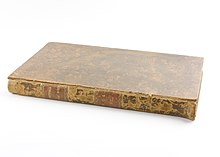
The Jersey Act was a regulation introduced to prevent the registration of most American-bred Thoroughbred horses in the British General Stud Book. It had its roots in the desire of British horse breeders to halt the influx of American-bred racehorses of possibly impure bloodlines during the early 20th century. Many American-bred horses were exported to Europe to race and retire to a breeding career after a number of U.S. states banned gambling, which depressed Thoroughbred racing—and thus breeding—in the United States. The loss of breeding records during the American Civil War and the late beginning of the registration of American Thoroughbreds led many in the British racing establishment to doubt that the American-bred horses were purebred.
In 1913, the Jockey Club and the owners of the General Stud Book passed a regulation named by the foreign press after the Jockey Club's senior steward, Lord Jersey, prohibiting the registration of horses in the book unless all of their ancestors had been registered. Despite protests from American breeders, the regulation remained in force until 1949. Among the factors influencing its relaxation were the racing success of ineligible horses in Europe and the damage caused to British and Irish breeders by the unavailability of French Thoroughbreds during and after the Second World War. In addition, by 1949 the possibly impure ancestors of the American bloodlines had receded far back in most horses' ancestry.